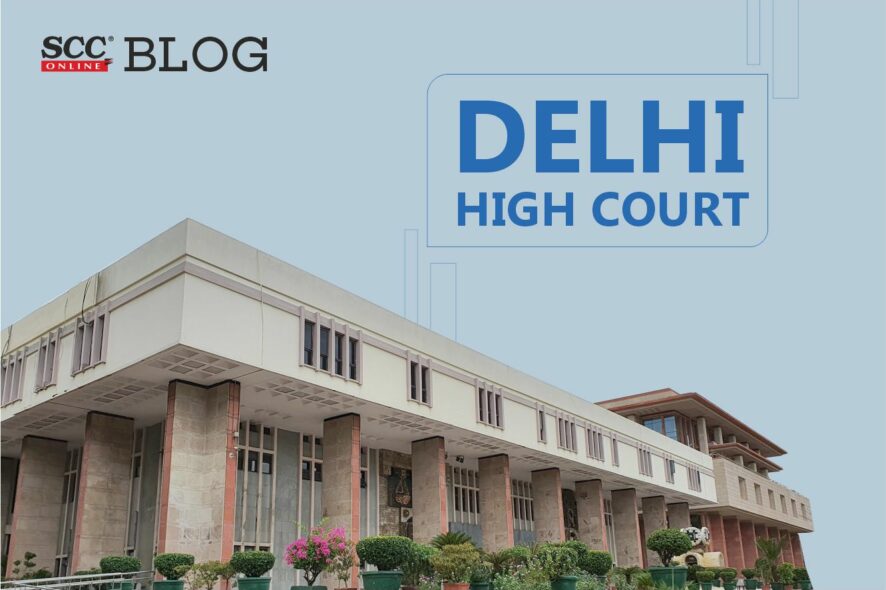Delhi High Court: In two separate suits filed seeking recovery of amount from the defendants, being ex- promoters and personal guarantors of debt of Bhushan Steel Limited, now renamed as Tata Steel Limited, Amit Bansal J., stayed the proceedings in the present suit against defendants in view of the clear statutory mandate under Section 96 of the Insolvency Bankruptcy Code, 2016 (IBC).
Both are summary suits filed on behalf of Axis Trustee Services Limited and Norddeutsche Landesbank respectively under Order XXXVII of the Civil Procedure Code seeking recovery of EUR 64,751,108.73 and EUR 44,102,086.02 respectively from the defendants 1 and 2 as the repayment obligations of Bhushan Steel were secured by way of a personal guarantee given jointly by them.
The Corporate Insolvency Resolution Process (CIRP) was initiated against Bhushan Steel before the Principal Bench of the National Company Law Tribunal (NCLT) wherein decided amount has been received by the Financial Creditor(s) as per the suggested Resolution Plan. However, financial creditors of Bhushan Steel were given the right to recover any unresolved financial debt, owed by the borrower, from the guarantors in terms of the personal guarantee issued by them.
The main issue for consideration is whether the present suits can proceed against the defendants in view of applications having been filed under Section 95 IBC against both the defendants?
The Court noted that Section 179(1), IBC which provides the jurisdiction for the DRT with respect to insolvency matters of individuals and firms, is subject to Section 60 IBC. A harmonious reading of the Section 60 and its sub clauses concludes that Section 60 (1) applies in respect of insolvency proceedings in respect of personal guarantors of corporate debtors irrespective of the fact whether CIRP is pending against the corporate debtor. The objective of sub-sections (2) and (3) is that where proceedings in respect of a corporate debtor have been initiated in one NCLT and those against a guarantor before another NCLT or another court or tribunal while the CIRP is pending in respect of the corporate debtor before a particular NCLT, the proceedings against the personal guarantor should also be before the same NCLT.
The Court further noted that Rule 3(1)(a) of the Insolvency and Bankruptcy (Application to Adjudicating Authority for Insolvency Resolution Process for Personal Guarantors to Corporate Debtors), Rules, 2019, specifically provides that the adjudicating authority for the purposes of Section 60 would be the NCLT.
Thus, the Court held that the NCLT would be the appropriate adjudicating authority in respect of insolvency proceedings initiated against the defendants in their capacity as personal guarantors for the corporate debtor, Bhushan Steel.
The Court observed that a reading of Section 96 IBC makes it clear that the relevant date for the interim moratorium to come into effect is the date ‘when an application is filed under Section 94/95’. When the legislature has specifically used the word ‘filed’ in respect of an application under Section 94/95, the court cannot read the same to mean the date when the application is “registered”, as is sought to be contended on behalf of the plaintiffs.
The Court opined that in the present case, the application against the defendant 1 has been filed under Section 95 IBC by State Bank of India on 28-05-2022, as a creditor of the corporate debtor/borrower for whom the defendant 1 stood as a guarantor. Therefore, in my view, the relevant date on which the interim moratorium under Section 96 would kick in would be 28-05-2022.
Placing reliance on Stichting Doen-postcode Loterij v. Vin Poly Recyclers Pvt. Ltd., 2010 (115) DRJ 708 (DB), the Court further noted that the mandate of Section 96 IBC is clear. The interim moratorium under Section 96 IBC kicks in as soon as an application is filed under Section 94/95 of the IBC and the effect of such interim moratorium is that all pending legal proceedings are deemed to have been stayed. Therefore, the proceedings in the present suits are liable to be stayed and judgment in respect of applications seeking leave to defend cannot be pronounced.
On the contention put forth by the defendant that whether the interim moratorium in respect of one of the co-guarantors would also apply to the other co-guarantor for the same debt as the liability of both the co-guarantors arise from the same debt, the Court remarked that the language of Section 96(1) IBC cannot be stretched to include all co-guarantors within the ambit of the interim moratorium.
The Court stated that it is clear from the language used in Section 96(1)(b)(ii) IBC the effect of the interim moratorium is only in respect of the debts of a particular debtor and by no stretch of imagination can it be said to include other independent guarantors in respect of the same debt of a corporate debtor. Merely because an interim moratorium under Section 96 is operable in respect of one of the co-guarantors, the same would not apply to the other co-guarantor(s).
Thus, the Court held that in view of the discussion above and the clear statutory mandate under Section 96 of the IBC, the proceedings in the present suit are stayed against both the defendants.
[Axis Trustee Services Limited v Brij Bhushan Singal, CS (Comm) 8 of 2021, decided on 04-11-2022]
Advocates before Court
Mr. Dayan Krishnan, Senior Advocate with Ms. Misha, Mr.Vijayant Paliwal, Ms. Moulshree Shukla, Mr. Sukrit Seth, Mr. Parth Gokhale, Ms. Megha Khandelwal and Mr. Daksh Kadian, Advocates for plaintiff
Mr. Sandeep Sethi, Senior Advocate with Ms. Ranajana Roy Gawai, Ms. Vasudha Sen, Ms. Aayushi Singh, Mr. Parminder Singh and Mr. Pranjit K. Bhattacharya, Advocates for defendants







